#Peter (a Silver Age hero) may have his struggles but he for the most part holds onto his optimism and gets the occasional win
Text
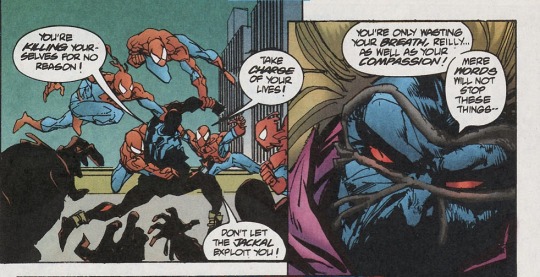

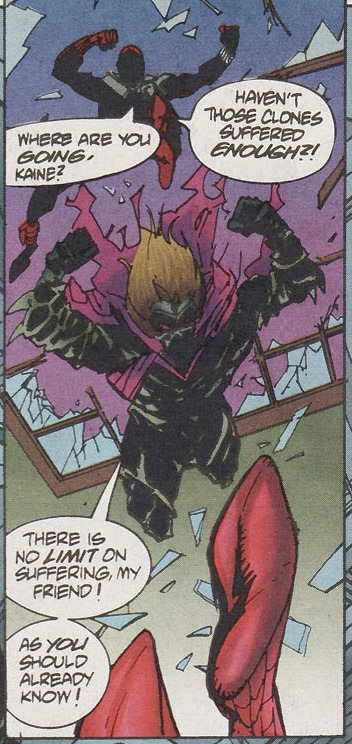
“If Death be My Destiny!” Spectacular Spider-Man (Vol. 1/1976), #227.
Writer: Tom DeFalco; Penciler: Sal Buscema; Inker: Bill Sienkiewicz; Colorist: John Kalisz; Letterer: Clem Robins
#Marvel#Marvel comics#Marvel 616#Spectacular Spider-Man#Kaine#Kaine Parker#Scarlet Spider#Ben Reilly#Kaine /please/#never before have I seen a bowling ball filled with such nihilistic bitterness#but beyond the ethical differences this also is a pretty good showcase of the differences between their characters#Kaine is resigned to pessimism (violently so)#while Ben endlessly holds onto hope (even if the end result is ultimately hopeless)#furthermore I feel like their characters as displayed here exemplifies how much they were products of their time#Kaine obviously has a lot of the signposts of the archetypal 90’s dark anti-hero#but Ben doesn’t escape the nihilism that plagued 90’s comics either#he may technically have been introduced in the 70’s but you could definitely argue that “Scarlet Spider” is a purely 90’s invention#and it shows#Peter (a Silver Age hero) may have his struggles but he for the most part holds onto his optimism and gets the occasional win#Ben in contrast holds onto his optimism for the most part but in all honestly I’ve yet to see him have any sort of “win” that lasts#but anyway don’t mind my rambling in the tags hahaha
13 notes
·
View notes
Text
Wish (2023): Movie Review

I have to start this by saying how much I hate the online discourse about this movie.
It's okay if you think this movie looks and sounds boring. It's okay if you don't want to support Disney anymore. And it's okay if you just don't want to watch it.
I see plenty of people saying you have to watch this, otherwise the studio will go back to releasing only sequels and remakes, and it's a very stupid argument. Movie executives are buttholes, and they always learn the worst lessons. Regardless of what Disney does next, it won't be because of the public.
You don't owe your time to Disney.
Said that, I loved this movie, and I struggle to see what exactly turned so many people off. I watched twice just to be sure, and I had an amazing time going through this movie.
Make no mistake, I feel like it definitely could be better. I feel like it's a weaker movie if compared with Tangled, Frozen, and Encanto, but along Encanto, it is definitely one of the most enjoyable entries in the WDAS catalogue since Moana in 2016.
The animation was great. I loved the texture and colors, especially in the night scenes. Some of the backgrounds gave me Silver Age Disney flashbacks, which is great because the Silver Age (1950 - Alice, Cinderella, Peter Pan, Sleeping Beauty, etc.) is my absolute favorite era of the studio.
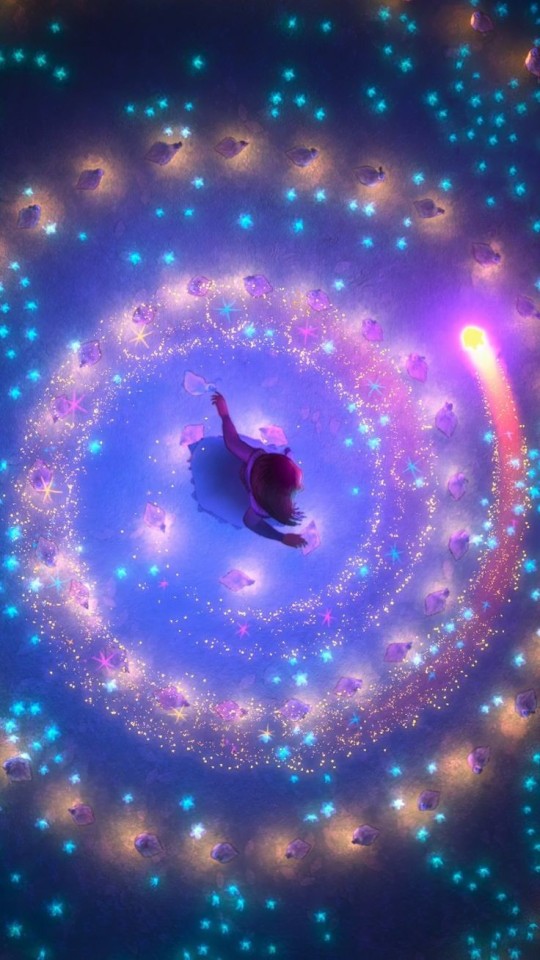
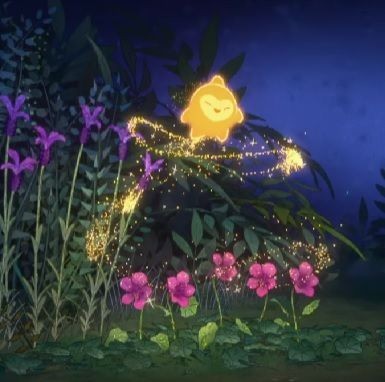

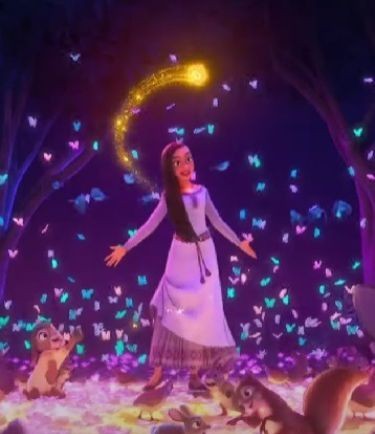
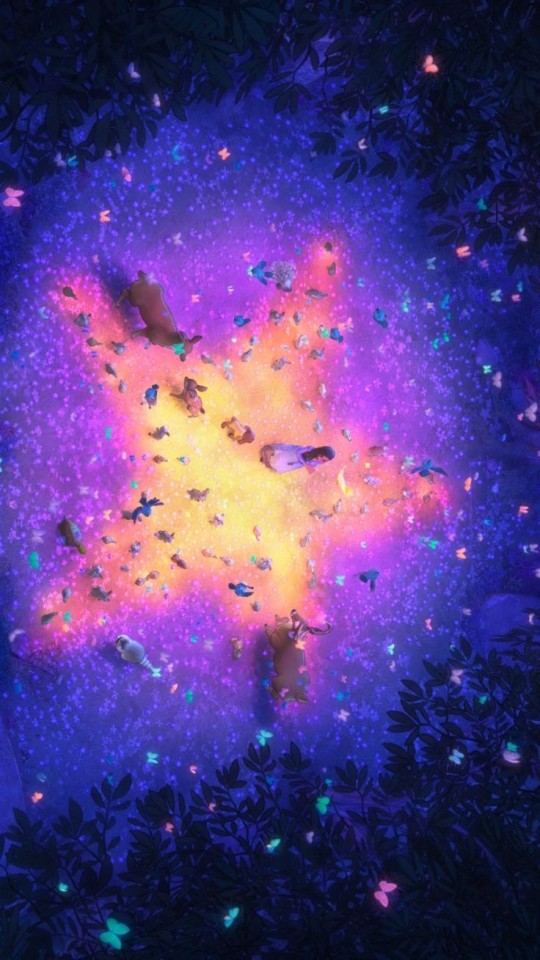
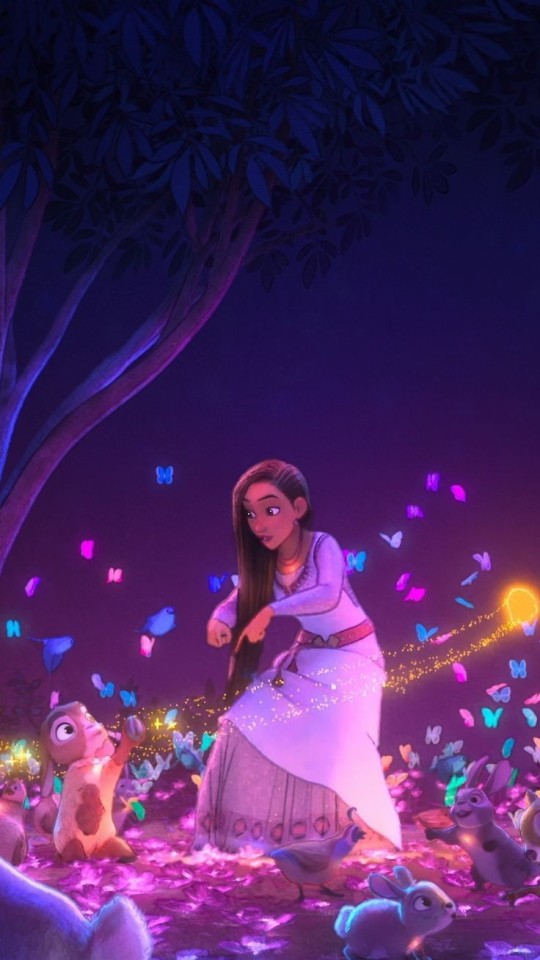
Keep in mind, that I had to pirate this movie because it still hasn't come out here in Brazil, and even with the image being a bootleg filmed straight from the movie theater, the animation still looks impressive and beautiful.
Asha brings nothing new to a Disney Heroine, but Ariana DeBosse enfuses this character with life and makes it pretty likable. She never failed to make me laugh at the situations Asha finds herself. I think Asha is the perfect embodiment of a human disaster.
I hate the discourse about the Adorkable Disney Heroine that ModernGurlz brought up, because it pretty much feels like the Mary Sue discourse that I had to endure from Star Wars fans. People just regurgitate the online talking points, project their own grievances on them, and add nothing new to the conversation.
Asha and Anna are the only Disney heroines that really fall into the Adorkable character archetype, and even then they have enough character circunstamces to set them apart.
King Magnifico is a absolutely delicious villain. Chris Pine chews the scenario with this one. He is one of the few characters with a real arc, and is a corruption arc. I absolutely love how we see his insecurities, his pride, his narcissism, his greedy slowly take a tool on him. I love how he is not a villain from the start, but how he succumbs to villainy over the course of the movie.

And no, Magnifico is not good or right under any circumstance. He is not a tragic hero guys.
I actually think it's funny how he has a character arc similar to Wanda Maximoff, but with fewer redeming qualities, and although people correctly called her out on it, because he is an attractive man people keep trying to find excuses for him.
The songs are bangers. I don't think the lyrics are that atrocious. I understand people not liking them, but they are meant to be playful, and the visuals during the their sequences absolutely sells them, at least for me.
On the downside, Wish's script is very underdeveloped, with some parts very rushed and not properly fleshed-out. But even with that it has very unique and original ideas that I wished had been explored better.
I love the theme of wishes and dreams being physical things that you can use to manipulation, harm, and control people. I think it has a lot of real life implications that I may explore on a different post.
The room with the wishes as magical blue orbes is the most striking scene for me.
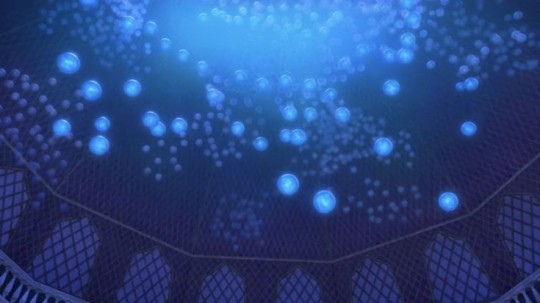
I don't know if the original concept was better and Disney forced the team to neuter their vision, or if Jennifer Lee just doesn't know how to write sincere fairy tales.
Either of these possibilities makes complete sense, especially since I don't like Jennifer Lee's vision for the studio.
Overall, Wish is a weak Disney film, and I understand people being disappointed, especially since it is meant to celebrate the 100th anniversary of the studio, but it still has plenty of things to enjoy.
It's very sweet, full of heart, and with so many live action remakes laying around, this isn't soulless at any point.
It definitely could be better, and we should expect better coming from one of the most powerful media corporation on the planet, but Wish isn't mediocre, and it doesn't deserve the online hate.
Wish is a good movie with good ideas and concepts, that could be better developed.
I especially struggle to see why this movie was so hated when some of Disney's more recent movies were much worse and didn't got that much negative attention.
Anyway, I think Asha and her friends deserve better and I love them so much.
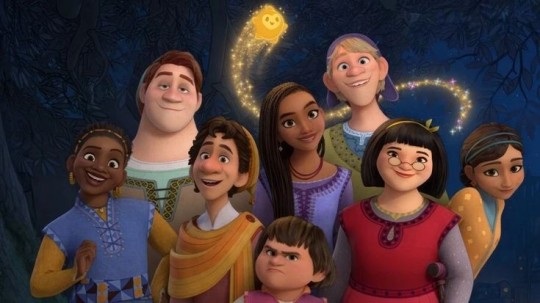
I just hope Disney doesn't lock up Asha and them on the vault. They totally deserve better from Disney and from the fans.
21 notes
·
View notes
Text
‘The Absent Father and Spider-Man’s Unfulfilled Potential’: Rebuttal Part 2: Introduction Continued

Master Post
Fettinger continues that in his civilian life Peter’s life was a directionless disaster.
This is again profoundly unfair and untrue.
Peter’s life lacking direction was directly attributable to the life he led as Spider-Man.
And yet Peter managed to leave home, later get a place of his own, graduate collage, got married and was attended grad school on three separate occasions.
He only failed to finish grad school the first time around because he made the smart decision to put things on. He was struggling to juggle the increased workload, his social life and Spider-man activates. He passed the first year through the skin of his teeth and was aware the second year would be worse. At the time he’d gotten into a new relationship with the Black Cat who had been severely injured following a battle, recovering very gradually. Peter was also trying to help pay for her medical expenses. Felicia was also a reforming criminal who’s prior attempt at going straight had failed. In order to keep Felicia on the straight and narrow, in order to help her recover and build a future with her it made a lot of sense for Peter to put his education on hiatus whilst he got his affairs in order.
A quick successions of attacks upon his personal life occurred during his second attempt to complete grad school meaning he naturally dropped out again. These attacks were not his fault. Your best friend trying to kill you, your parents coming back to life, your aunt entering a coma and you having a mental breakdown all BEFORE your clone shows up and your wife gets pregnant are incredibly legitimate reasons to drop out of collage.
Only his third attempt was arguably illegitimate as he dropped out off-panel during the Mackie/Byrne run.
Even this can be defended in-universe on the grounds that his aunt May had recently been revealed to be alive, thus justifying time off. Soon after he landed his dream job. Why bother finishing school when you have the occupation you wanted. Why try to juggle that job, your family and your studies all at the same time if it is unnecessary?
Moreover Peter’s dropping out was simply one of the many, many, many, many, many out of character moments that pervaded that run and the stories intended to lead into it. Fettinger himself would tell you that so they really shouldn’t count.
Not to mention, the series never actually confirmed for us if Peter did or did not drop out. He was attending grad school and then a time skip later he wasn’t. Realistically given how a Graduate School programme can last years he likely hadn’t finished earning his degree, but again that wasn’t confirmed for us.
At the time Fettinger’s essay was published, Peter had also taken on a job as a school teacher, joined the Avengers, had made (successful) efforts to reconcile with his wife, acclimatise his Aunt May to his superhero identity, was making more time for both ladies in his life and was working to try and help rehabilitation of some of the criminals he had captured.


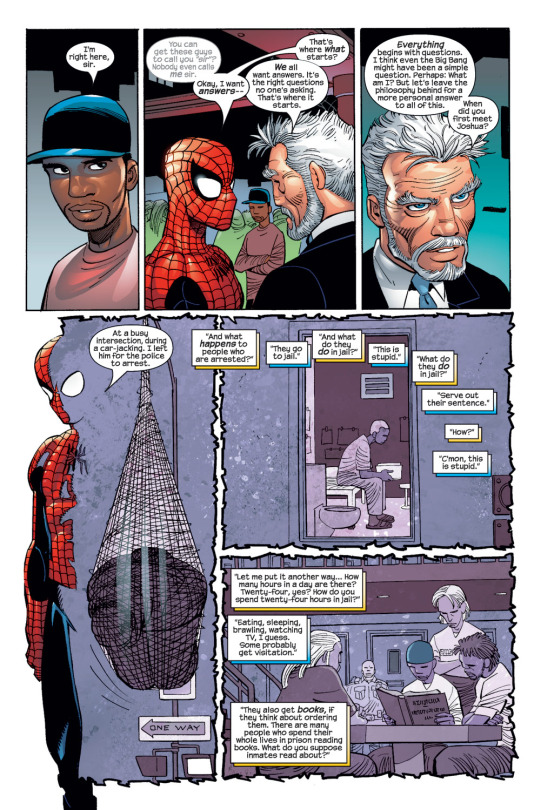
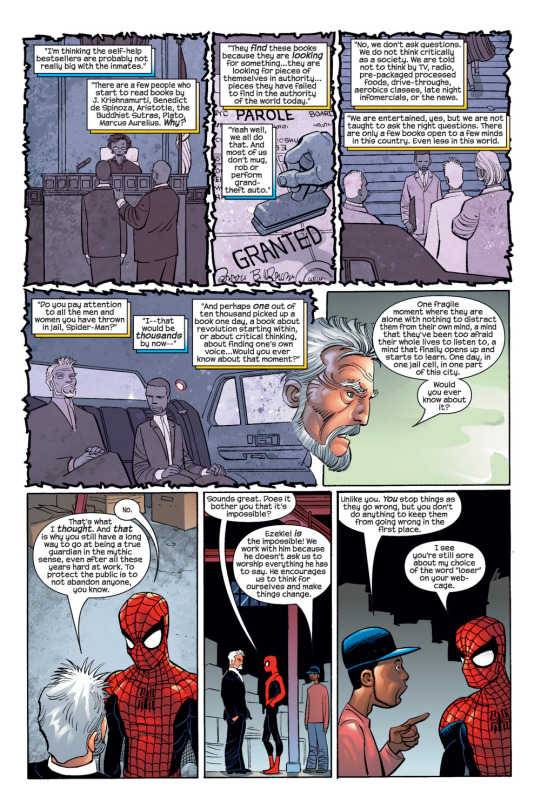

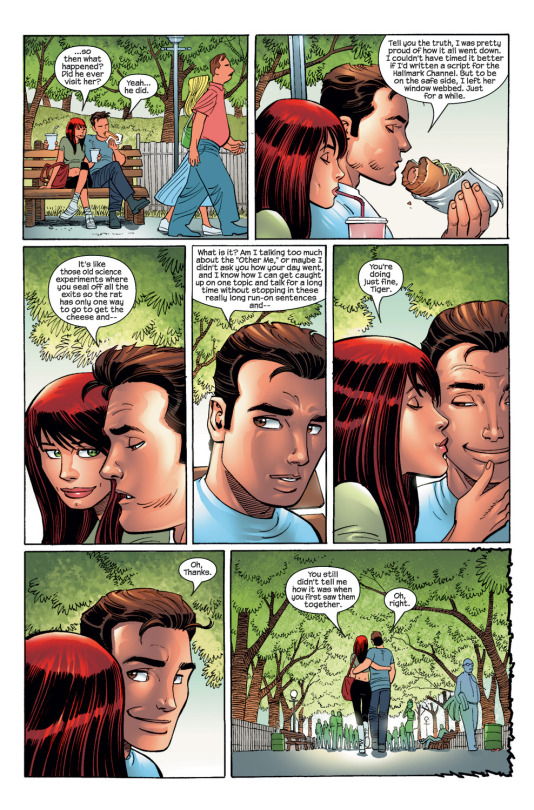


Hardly ‘directionless’.
This is to say nothing of how quite frankly in the mid-2000s MOST people around Peter’s age (25-30) didn’t exactly have a clear cut ‘direction’ in their lives and this was even more true in the consequent decade.
I think this is a criticism equitable to incredibly old-fashioned thinking from older people wagging their fingers at ‘the younger generations’.
Fettinger continues by saying ‘His scientific prowess should have made him a peer of Reed Richards and Tony Stark, men who became prosperous and/or well-respected for their civilian achievements, but he seems to have squandered his potential. These men are not immune from the ravages of human frailty, with alcohol being Tony’s personal demon, and Reed’s neglect of his wife Sue nearly driving her into the Sub-Mariner’s arms more than once, but both have succeeded in balancing superhero careers, satisfying intellectual pursuits, and maintaining some semblance of an organized personal life.”
This was another ‘what the fuck moment’ for me when re-reading this essay.
Honestly, as someone who loves this character this statement made me angry and even made me question if Fettinger ever actually LIKED the character himself.
First of all, have Reed and Tony even succeeded at what Fettinger claims they have?
Tony’s life has often been pretty fucked up. Circa Civil War he and Reed were the pariah’s of the super hero community. Tony’s alcoholism had brought him and his company close to ruin more than once. Reed and Sue had separated in the past more than once and at one point Reed but their son Franklin into a coma. And both men have had their lives made exponentially more difficult by being heroes.
That’s not a ‘semblance’ of an organized personal life. Just because they’ve managed to invent things and be superheroes at the same time isn’t proof to the contrary.
More importantly, even if we accept Fettinger’s claims about Reed and Tony, this is a gigantic false equivalency.
The central reason that Peter has failed to balance his super hero career, intellectual pursuits and an organized personal life is because it is impossible!
Fettinger, despite being this so-called authority on the character is demonstrating a huge misreading of the intent behind Spider-Man’s creation.
He was created specifically to be a more realistic super hero. In that context his superhero life wasn’t allegorical for a real life job or responsibility. Rather the point was to explore how a (relatively) realistic person would believable handle being a hero. This is why Peter initially seeks to use his powers selfishly and needs to learn to use them altruistically.
In other words, Peter has to deal with all the stuff we deal with in normal life in ADDITION to being a superhero.
In real life, your job or family might be the most important thing you do. But for Spider-Man they are inherently secondary.
They are just as important to Peter as they are to anyone in the real world but he also has a huge burden even greater than they are to manage.
This is literally the central conflict behind the character. The constant struggle to juggle real life responsibilities against this grander calling.
You might argue he’s the equivalent of a cop, fire fighter or soldier, but that’s not true. There are similarities rendering those roles appropriate allegories. But that allegory breaks down when you consider he is unpaid for his services, has to maintain secrecy whilst performing them and still needs to earn an income. Imagine doing your job but then also being a cop/fire fighter/soldier who has to be potentially available 24/7 as well.
Reed and Iron Man were never treated with this degree of realism in mind. None of the classic Silver Age Marvel heroes were. Daredevil developed a similar (or arguably greater) degree of realism later under Frank Miller’s pen. And noticeably he too has struggled to find a balance in his life just as Peter has.
Even if we ignore this metatextual argument, the in-universe do not corroborate Fettinger’s point.
I’m no F4 or Iron Man expert so feel free to correct me on anything I get wrong.
But last I checked, circa 2006, Reed and Tony categorically didn’t operate as heroes the way Peter did.
Reed and the other F4 were not crime fighters, and never were. They might deal with crises that arose if they were made aware of them somehow. But they weren’t keeping an eye on organized crime or the drug dealers moving onto the local street corner. They weren’t actively going on regular patrols seeking out petty theft, car jackings, alley way muggings, bank robberies, etc.
IIRC nor was Tony. I think at most he was more concerned with industrial sabotage, the activities of international criminals like the Mandarin, foreign powers like the Soviets or larger scale crises. It wasn’t like he (with or without the Avengers) was responding to every bank robbery in NYC or sticking it to the Maggia or Kingpin.
Spidey though was going out almost every day and night specifically to seek out crime and directly intervene in it. He wanted to avoid anyone else losing their ‘Uncle Ben’ to a burglar because he was passive or complacent.
That didn’t just entail living his life and intervening if he happened to bump into any crime. He was proactive in actually going on the prowl for threats he could help resolve.
Fettinger is also disgustingly unfair because he’s neglected the context surrounding when Reed, Tony and Peter became heroes.
Reed and Tony were ALREADY financially secure and scientifically accomplished men in their late-20s-late-30s when they became heroes.
They’d already figured out effectively methods of playing the game of life, they already mastered scientific skills and had a foundation of accomplishments and money that could make their superhero lives easier if anything.
It’s simply easier to maintain those things as a super hero when you start off that way.
In contrast let’ consider Peter Parker.
He was 15 when he got his powers. He was at most lower-middle class and his family didn’t have much money. Unlike Reed or Tony he had an elderly, health challenged relative to provide care and support for. He was still in school and whilst scientifically gifted didn’t yet have a full education in any scientific field. To get one he’d need to attend college but his household wasn’t able to afford that even before the breadwinner (Ben Parker) died. Therefore Peter didn’t just need to pass high school but earn a scholarship simultaneously. And as for his social life he’d never really had any friends and was thus more poorly practiced at maintaining friendships or romantic relationships than even his fellow school peers. Even if he hadn’t been he didn’t have the same level of experience with such things Reed or Tony would have had due to his age. He wasn’t done growing up yet. Granted Tony wasn’t exactly wise in the ways of serious relationships, but he nevertheless knew how to play the dating game. Reed on the other hand was engaged (or on the cusp of it) when he got his powers.
These were men who had figured out a lot of life, accomplished a lot and grown up long before they began superhero careers.
Peter was starting out with MASSIVE handicaps compared to them.
He needed to simultaneously:
Figure out how to be a grown up
Do that faster than his peers
Care for his sickly aunt
Grieve his uncle
Figure out how to navigate the social scene of people his age, including the ways of romance
Maintain his school grades
Earn a scholarship
Educate himself in various scientific fields
Become the bread winner for his household or else risking them losing their home and May’s access to the medicine that was preserving her life
THEN he needed to be a superhero on top of that!
And what did that even entail anyway?
Figuring out how his powers worked and their limits
Figuring out how to fight
Risking his life against people who regularly wanted to kill him
Dealing with people who went out of their way to target his life, sometimes having that bleed over into his civilian life
Maintaining secrecy as best as he could out of fear of being imprisoned or even killing his aunt due to the shock
Dealing with some people who were actively trying to uncover his identity
For most of his career, never having anyone to mentally relieve his burden by sharing his secret
Figuring out how to seek out crime, track crooks, gather information, the structure of criminal organizations
Fending off deadly and often more powerful opponents
Being hated and feared by most of the general public, authorities and fellow heroes.
Fighting alone most of the time
Created and maintained his own equipment which he did out of his own pocket, despite the hit it took to his finances
Being accused of various false crimes by the press, public or authorities
Helping his boss smear his name because he was the only reliable means of income Peter had
NOBODY could deal with all that. It’s a miracle Peter merely maintained his sanity, never mind successfully kept a roof over his and May’s heads, lowered the crime rate and successfully built a long-term relationship with Mary Jane.
Sure, some of that stuff would get easier over time, but even if other things hadn’t arose to make life harder for him, it’s still an impossible juggling act.
And unlike Tony or Reed Peter rarely had access to much cash, resources or a supportive team to help him. Those things would make all the difference if Reed and Tony were engaged in that time of superhero work.
Reed could rely upon his family to handle a crisis to help out with his latest experiment if necessary, giving him more time to focus upon other things. Tony could delegate duties in his company to staff members whilst he zipped off to save the world or alternatively could turn to his Avengers colleagues to handle a crisis if he needed to attend to important business. And obviously this support network could greatly help if Reed or Tony had any sickly relatives to look after.
With Peter everything was riding on him. Aunt Anna could help out at times, but she wasn’t a full time caregiver. He had no teammates to help bear the burden of fighting crime. Even his partnership with Felicia entailed going on patrol together, not her going out instead of him.
He had no financial security. He lived from one pay cheque to another because he had no choice. Even when he got older and didn’t need to worry about May as much being Spider-Man critically undermined his ability to maintain a 9-5 job. Hence why Tri-Corp (and later HORIZON labs) gave him flexi-hours and why he needed to take so much time off as a teacher and was basically kept around because Midtown High was just that desperate.
It’s one thing to maintain financial security as a super hero when you begin like that. It’s another story entirely when you are clawing your way up the economic ladder from a lower class position whilst being a hero at the same time.
The same thing applies to his scientific pursuits. Where was he supposed to find the time, money and resources to invent anything that’d win him accolades?
Gee if only there was a story which illustrated how being Spider-Man fundamentally held Peter back from fully living his own life…if only that story had then formed the basis for a major motion picture in 2004…
But yeah, if only Peter had a father figure all this would be a none issue.
From a certain POV that’s true, but only in the sense that Peter would’ve had some of the burden lifted from him. He wouldn’t have had to be as concerned about supporting Aunt May. He wouldn’t have had to have spent as much time figuring out how to play the social game if his Dad had maybe been around to show him (although Aunt May was there for that too so would Ben have made much of a difference?).
But it wouldn’t have meant his life would’ve been fixed and his potential unfulfilled. Because being Spider-Man innately held him back no matter what. He was never going to be able to hold a 9-5. He was never going to be able to give his loved ones all the attention he owed them because duty would inevitably call. And unless his father figure was loaded he’d have never had have access to the resources necessary to invent shit. But that wouldn’t have happened regardless of Richard or Ben Parker dying or not. Peter needed a scholarship even before Ben died, so the Parker household was clearly not well off financially.
Let’s also consider that Reed’s home and hero life are functionally one and the same. His scientific pursuits go hand in hand with the work the F4 usually do. This arguably became the case with Tony as well once he discarded his secret identity in the 2000s. Even before then, he had a much easier solution to maintaining his identity considering it would be believable for a rich man like him to have a super powered body guard and his tech would have enabled him to remotely control the armour at times to maintain appearances.
Peter had neither luxury, with his two lives only overlapping in moments of crisis 9/10.
Not to mention Fettinger’s logic here is hurt when we consider neither Tony nor Reed’s Dad’s were all that great in the first place. It seems both of them succeeded in spite of their father’s not because of them.
Basically, father or no father, if Peter had the same circumstances he’d have been in roughly the same position he is now. He wouldn’t have become Reed or Tony.
So confession time.
I began writing this rebuttal at a time when I had no access to Fettinger’ essay sans the physical book it came in. I began writing down bullet points for his consequent points.
And just as a reminder Fettinger’s ‘thesis’ for this essay is that Peter is a screw up with loads of ‘unfulfilled potential’ because he never had a stable father figure in his life following Ben’s death.
· Peter flunked out of college and even failed to graduate with his class because he forgot to take a required gym credit.
Peter didn’t flunk Grad school and he made up his collage degree by earning the SINGLE credit he needed over the consequent summer, which is entirely different to truly flunking.
It’s also got jack to do with not having a father or failing to fulfil his potential. Like around that time Aunt May was in the hospital, had nearly died and he was kinda busy saving people’s lives.
· Two attempts at post graduate education failed.
Actually he tried three times and ‘failed’ is very subjective. See what I said in earlier instalments about the stuff around the early-mid 1990s and the Mackie/Byrne era. Those were the second and third times he tried for a post-grad. The first time he never failed, he simply decided to quit for perfectly practical reasons and return later.
· He made only a marginal living mostly as a freelance photographer because until recently (remember this was written in 2006) when he became a high school teacher, he couldn’t hold a steady job.
Notice how he acknowledges being a high school teacher and yet claims Peter is ‘directionless’.
And more poignantly NO ONE can be Spider-Man and hold a 9-5.
That’s literally the entire reason Lee/Ditko had Peter become a photographer. Because they were trying to tell the story of a realistic super hero and a realistic superhero couldn’t hold down a 9-5 when he might be on duty at any time; even matt Murdock has a partner in Foggy Nelson to cover for him if needed. So they engineered a method for him to earn a living whilst still being Spider-Man, by making being Spidey the means to that end.
· His friendships often failed because he neglected them.
This is not true, his friendships rarely ever failed. When they did it was often not due to his being neglectful. Even on the instances where this could be said to be true again he had a good reason for that. He was SPIDER-MAN!
· Any success with women, including his marriage to Mary Jane Watson (who left at least once) owes more to his partner’s Job-like patience than any effort on his part (and part of MJ’s devotion to Peter may be tied up in her own relationship abandonment and hero worship issues).
It is true MJ has the patience of a saint. But so do the wives of many police officers, fire fighters, soldiers, politicians, political activists etc. And I do not necessarily disagree that MJ’s patience was a huge factor (maybe the biggest) in keeping that relationship going. But Fettinger’s wording here combined with the wider context of his prior points make it abundantly obvious that he isn’t saying Peter put in effort but MJ’s patience happened to be a bigger factor. He is saying that Peter did not put in enough effort, that he slacked off.
Which is bullshit because again, he was being Spider-Man and more importantly with MJ and many of his OTHER relationships he plainly DID put in effort and consideration. Also it’s disingenuous for Fettinger to refer to MJ leaving Peter because he KNOWS that was OOC nonsense and wrote about it. See his 2001 Year in Review from his Spidey Kicks Butt website or this site.
As for MJ’s ‘abandonment issues’ and ‘hero worshipping’ issues, let’s unpack that.
MJ’s issues weren’t about abandonment. Not unless Fettinger is referring to MJ herself abandoning her sister.
MJ was never abandoned as a child. Yes, in ASM #292 MJ claims her Dad walked out on her mother but re-read her origin from ASM 259 or Parallel Lives. It was the other way around.
So MJ literally hasn’t got any abandonment issues in the first place.
Even if you did contort it to being about abandoning her sister that’s not a matter of her ‘issues’. That term refers to the idea MJ has unresolved baggage that, if she only addressed, she’d have not been with Peter or stayed with him.
That interpretation though is BS for two key reasons. Firstly, MJ resisted committing to Peter for the longest time which was also at the root of her leaving her sister high and dry. Her staying with Peter when Gwen died and helping him was an example of her GROWING as a person and becoming BETTER, not her doing it as some kind of weird repentance for her abandoning her sister in her time of need.
Secondly, MJ was only able to fully commit to Peter when she’d laid her demons with her sister to rest in ASM #292. There was still unresolved business between them and her own father but when she settled that she was more comittied to her marriage to Peter not less.
Maybe Fettinger’s intent was that her father’s abuse of her represented a form of abandonment. Or maybe he just phrased himself badly and meant the latter point regardless. Well that too doesn’t hold up to scrutiny.
Parallel Lives shows us MJ’s issues with her father was a motivator for her to steer clear of Peter not grow closer to him.

And more importantly if MJ’s romance with Peter has anything to do with her father it’s only because Peter is so unlike her father. In her mind her father’s traits =bad. Peter, in having the opposite traits = good, and therefore attractive.
By any metric MJ’s desire to be with Peter clearly has nothing to do with any ‘issues’ she had. On the contrary her not being with him was because of her issues. This was incredibly basic and laid out. Fettinger himself touched upon it in this essay.
Now for her hero worship…what hero worship?
Yes MJ respected and was attracted to Peter partially because he was a hero. But that’s not an ‘issue’ because most women would likely have been attracted to such traits. Doctors or firemen are a common turn on for many women and Spidey’s job is analogous to that.
In truth MJ was turned on more by his sense of responsibility embodied by his heroism as discussed in Web #6 (which Fettinger cited in the previously linked to essay). MJ doesn’t want Peter to be a hero out of concern for his health but also recognizes that if he wasn’t a hero he wouldn’t be the man she fell in love with. Stories like Spider-Man the Final Adventure and the MC2 universe though prove how MJ wouldn’t fall out of love with Peter if he quit being Spider-Man.
She doesn’t have hero worship issues!
· If we didn’t know Peter was Spider-Man we would probably consider him either “brilliant but lazy?” (see ‘Spider-Man 2’) or simply a loser.
Right except we DO know he is Spider-Man hence so many of the above criticisms are totally out of line, even ignoring many of the blatant inaccuracies to them.
· He appears to be a chronic underachiever in both identities.
Yeah no. That statement ignores then recent developments in Spidey titles. More importantly it ignores the fact that to ‘fulfil his potential’in either identity he’d have to have access to things (like money and team support) that he simply lacked or else dedicate himself to one life over the other which he cannot do. It isn’t that there is something wrong with HIM it’s that the nature of his SITUATION is rarely conjunctive to success.
· Why is this? What kept him from putting the disparate parts of his life together and becoming an even greater hero?
What further greatness does he really need?
Circa 2006 he’d become an Avenger, the premier heroes of the Marvel universe. He had won a Hell of a lot of battles against seriously powerful foes. He’d saved countless people in his time an lowered the crime rate.
I’m just going to give you the gist of Fettinger’s next several points.
He basically argues that Peter has always subconsciously sought out a father figure to replace Uncle Ben.
Which is TRUE.
But he goes on to argue that the reason for Peter’s unfulfilled potential is BECAUSE he’s lacked this father figure in his life. To be fair to him and give him the benefit of the doubt he does say a positive male role model ‘could’ have made the difference and qualifies that there are plenty of people who do fine without positive male role models.
The problem is that he’s set up this whole essay by being cynically over critical, inaccurate and disingenuous about Peter’s ‘failings’.
Meaning he isn’t clearly asserting that Peter’s lack of a father merely might be the cause for his ‘underachieving’. He is clearly saying Peter is an underachiever and lacking a proper father is the reason why. It’s also disingenuous because Fettinger earlier on in the essay called out Peter as an underachiever by comparing him to womanizing, alcoholic hedonist and weapons manufacturer Tony Stark who you know...had an awful Dad!
· Fettinger lists off the difficulties of growing up in general and how supporting Aunt May and being a superhero made that more difficult. And how it’d be especially hard when doing it on your own. Which is true and a father by his side to help him would’ve made Peter’s life much easier.
But to say that the complications he faced wouldn’t exist if he had a father is asinine.
Aunt May still could have died as she did repeatedly.
There is no assurance that Peter would’ve confided the truth into Uncle Ben or any male role model in his life.
And balancing normal life whilst being a hero is innately impossible even if Peter did have an easier time growing up because there wasn’t as much of a burden on him to support May or figure out how to socialize or be a man on his own.
His life would’ve been easier but her wouldn’t have achieved all Fettinger claimed he’s leaving unfulfilled.
Shit, Mayday Parker never balanced things even though she had it objectively easier than Peter ever did. And her Dad was literally Spider-Man!
· Fettinger writes that without May or MJ Peter would likely have fallen apart.
On this he is on the money.
· He writes that neither May nor MJ can relate to Peter as a genius, a superhuman being, a pursuer of justice nor simply as a man. Neither could substitute for a father figure.
Which is...kinda true....but also kind of not.
Yes MJ and May cannot directly relate to Peter in any of those ways. But, exempting being a male, neither could any given father figure. Other specific father figures (like the ones Fettinger goes on to discuss in the essay) potentially could though so I suppose he was just setting up the rest of his essay.
That being said Peter’s sense of justice didn’t come from nowhere so May could perhaps relate to this on some level. And MJ has shown that she has a certain sense of justice herself.



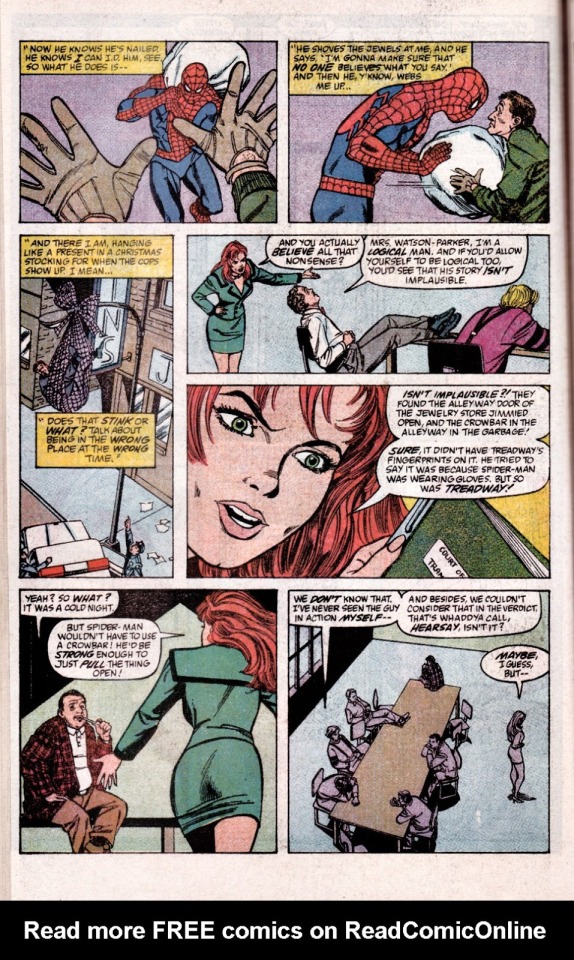
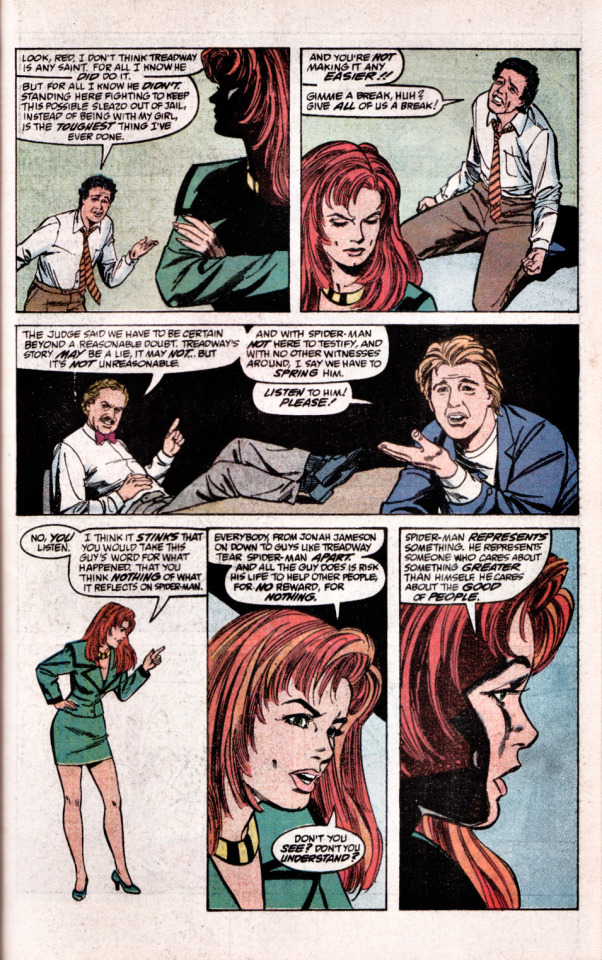

· Fettinger continues by listing off different potential father figures for Peter and examining the hypothetical end results of if they’d fulfilled their roles as father figures.
I’m going to dedicate an instalment to each one of them starting next time.
So with that I’ll leave it there.
Master Post
#spider-man#mjwatsonedit#mary jane watson#Mary Jane Watson Parker#Peter Parker#MJ Watson#Aunt May#May Parker#Ben Parker#Uncle Ben
3 notes
·
View notes
Link
Strap in as I dissect this one.
I'm gonna be brutal here...Miles is a charcter with some merit and a lot of potential but his merit stems from the fact that relatively speaking he's been portrayed in a way that doesn't do a bad job capturing the feelings of a young biracial poc in modern day NYC and his relationship to his identity as a POC.
I think there are much better examples out there and there have been times where you could at least argue Miles has dropped the ball.
But overall it is Miles' greatest strength as a character.
In other aspects though....not so much.
Because as much credit as you can Miles in regards to handling race and identity...his personality outside of that, his career as a superhero and his general status quo are laughably bad.
Miles suffers from the exact same problems most of Bendis' characters suffer from (including the Ultimate versions of Peter Parker and the other Spider-Man chaacters).
That is to say he is mostly bland as bread but he is handed praise simply because Bendis is associated with him. In a similar (but not as largescale) a way Stan Lee is revered because he pioneered a new way of doing comics Bendis' name automatically makes readers and observers praise his work because when his comics career began at Marvel he pioneered a brand new way or writing comics.
Problem is a lot of the time in pop culture people confuse novelty with quality.
Because Bendis and Stan Lee both, from a creative writing point of view, tended to miss way more than they hit.
Oh sure Bendis' Daredevil and Alias runs in most respects deserve the acclaim they get as does Stan Lee's Amazing Spider-Man and Fantastic Four runs.
But if you bother to really read most of Stan's OTHER Silver Age work...it's a billion miles away from those runs. Stan's Avengers, Iron Man and Thor stories are NOT stories that come anywhere close to the brilliance of his ASM and F4 work. They have great concepts behind them for sure but they are NOT executed very well.
And yet ALL of Stan's Silver Age work is held up in reverence.
The same holds true for the majority of Bendis' work. Most of it is garbage but is revered because he pioneered a new way of doing comics and readers of the early 2000s mistook the novelty of his work for genuine quality writing.
I mean when you honestly think about it for 2 seconds the decompression style he employs is financially and creatively toxic because it literally means readers need to spend more money to get ONE complete story and the pacing of it is destroyed. Reading in trades might be satisfying but the month-to-month sales get fucked in the ass.*
But people don't see that. They see decompression and they think it's goo because bendis does it and Bendis is the best writer around right so that must mean the way he writes is he best way to right.
Except it isn't.
Because Bendis is the guy who on Ultimate Spider-Man tookt he character of Peter Parker who's whole point is that he's the every man superhero motivated by the death of his Uncle ben and decided that his biological Dad Richard parker should be like massively important to the ongoing narrative along with his pseudo father figure Nick Fury the head of the super duper secret spy organization that runs the world. And then on top of that decided that instead of having J. Jonah Jameson be you know...an important character like he has been in....oh yeah EVERY iteration of Spider-Man's story he'd rather Jameson be rarely seen or heard from.
That's not even getting into what he did to the villains. Using just one example Ultimate Venom is objectively speaking a worse version of Venom than the 616 iteration of the character.
At his worst 1990s Venom was an over the top caricature embodying everything wong with the 1990s. He was a mindlessly violent grimdark anti-hero complete with a slavering tongue and idiotic catch phrase (I'll eat your brains!).
It was godaweful personality for the character....but at least it WAS a personality.
Ultimate Venom had ZERO personality. He was nothing more than a gnarling, gnashing mass of goop, teeth and tentacles. Which is NOT what Venom is supposed to be. Venom s supposed to be a evil version of Spider-Man. He's supposed to look like a warped image of Spider-Man and have all his powers, except he doesn't in this version.
When you look at the entire point of that character and of the Ultimate version of Spider-Man overall it was a colossal failure from everything other than a financial point of view. It's job was to do a modernized and more realistic take on Spider-Man but it failed because it fucked up the fundamental points of Spider-Man's story and characters.
But people PRAISED that which underscores my point. People praise Bendis' work because it's Bendis regardless of the quality of the content.
Miles is no different except he ALSO gets handed automatic praise because he provides representation for marginalized people again regardless of the quality of the character. This isn't unique to him because the SAME thing occurs with Riri Williams who is aggressively poorly developed from a characterization POV. I mean for goodness sake we're talking about a character who doesn't seem to care about her Dad dying to the same degree she cares about her BFF. Like...what the fuck. We're talking about a character who asks her teacher to marginalise her.
And despite that, she's praised by the comic book press in general.
Because they aren't bothering to look too deeply at her personality or her characterization or her development or any of the important shit that goes into evaluating writing. They just see a black woman in the role of a prominent white male superhero and that's all that matters.
Which is exactly how the author of this article looked at Peter Parker and MIles Morales.
Peter and Miles aren't people. They aren't characters.
Those aren't the most important things.
The most important things are that one is a white person and the other is a poc.
That is the primary capacity in which their characters and their very identities are to be viewed. That's the 'right' way to view them.
Except it's not and doing so is immeasurably stupid and in fact harmful to the cause of equality.
Saying ANY given instance where a black person or a person of colour is deferring towards a white person in the way Miles does is equitable with racism is as fucking stupid as saying Boys from the Hood is prejudiced towards white people because there are very few of them in the movie.
It divorces fucking CONTEXT.
So let's look at the scene from an in and out of universe perspective with the context applied shall we?
If you bother to read up on Miles Morales goddam history you'll KNOW he has routinely defined himself in contrast to older more established heroes, trying to live up to their legends. You could even argue it's part of the core concept of Miles Morales so having Miles state Peter is the real deal Spider-Man is not just 100% in character but not doing that in this context could be argued as being the height of dishonesty for his character.
It's like complaining that Spider-Man felt guilty over Aunt May's illness in this storyline. Him NOT feeling that way would be bad writing. Because of his established characterization he is OBLIGED to react that way.
But that's an in-universe thing.
Out of universe this is saying Miles lives in Peter's shadow and Peter is the one true Spider-Man.
Yeah.
That's 100% accurate. And to explain why we need to do a little history lesson on the very foundation of the Marvel universe.
Once upon a time in the late 1930s Jerry Siegel and Joe Shuster invented the first ever superhero, Superman. The hook for the character was that he was a guy with powers beyond those of ordinary men and used them to fight crime and save people. it was a hit and soon shittons of other characters were created with every name, costume and super power gimmick you could think of being canvassed.
Times changed though and supeheroes fell out of fashion and most of those characters disappeared. Superman, Batman and Wonder Woman however hung around because they were the most popular. Why were they the most popular?
Simple, of all of the various characetrs created they were the ones with the most substance to them relative to everyone else. Every other superhero more or less was a costume and a set of powers and a flashy name and little more than that. Batman had a compelling origin story and gharish supervillains. Superman was the ultimate embodiment of childhood wish fulfillment and Wonder Woman was the definitive female power fantasy.
In contrast the Flash and Green lantern were about a due who was fast and a dude who had a ring that made glowing green shapes. Riveting.
These characetrs were so unimportant that DC comics in the 1950s revived them by basically creating all new characters to replace them. And so we got Barry Allan and Hal Jordan amongst others.
And it was fine because nobody gave a shit about the old Flash and Green Lantern because again...they were superficial. So long as someone could run fast and had a green ring they were good enough. The superficial aspects of both superhero identities was actually so foundational to them that they were replaced AGAIN by Wally West and Kyle Rayner. Because again, the Flash was about a guy who was fast and GL was about a guy with a green ring. That was the POINT of them.
But in the 1960s some guys called Stan Lee, Jack Kirby, Steve Ditko (along with others) struck upon the idea that....maybe they should NOT make superheroes who's main hooks were their flash names, costumes and powers.
MAYBE instead of their powers the point of these characters should be their personalities, their relationships, their personal lives in general and the struggles they face day to day like most of us.
Spider-Man wasn't the first experiment with this idea but he was the most successful.
The point of Spider-Man is objectively NOT that there is a guy called Spider-Man, with web spandex and spider powers running around fighting crime.
The POINT is the life story of Peter Parker. The point and the thing that made Spider-Man popular was Peter Parker's SPECIFIC personality. His SPECIFIC relationships with his SPECIFIC friends, family and colleagues. His SPECIFIC jobs. His SPECIFIC life stauts quo in general.
It wasn't the case that ANY given character with ANY given set of friends or personality could've been plugged into that role and would've been as successful because if that was true Daredevil and multiple other Marvel characters would've been as successful too.
Hell NOVA, Speedball and other characters who were deliberate attempts to be the Peter Parkers of their generations never came close to that level of success.
Because the entire CONCEPT and APPEAL of Spider-Man is rooted SPECIFICALLY in Peter Parker.
Now with all of that said let's look at MIles?
Is his personality as vibrant and fleshed out as Peter's? No, he's bland and talked up as 'just a good kid' which is to say he lacks flaws in his personality (which was you know, part and parcel of the entire fucking POINT of all the Marvel characters)
Does he have a compelling motivation and concept powering him such as the guilt and sense of responsibility stemming from his Uncle's death which he blames himself for? No, not anymore. His core concept was that he was the legacy Spider-Man who picked up Peter's role when he died, something Miles feels he could have prevented. Now though that version of Peter came back to life and MIles is in a universe where Peter Parker is alive, has never died, is still active and Miles merely co-exists with him rather than adopts his role and tries to live up to the legend of a fallen hero.
Is his powerset a fine balance of making him a formidable fighter but also far from invincible? No, he can literally win any given fight by turning invisible, sneaking up on someone with his wall crawling powers and spider sense and electrocuting them. And we know it'll work because apparently his electorcution powers are strong enough to knock out Blackheart who is literally evil incarnate and the son of the Devil...and Electro who's entire body is a living electical battery. Miles Morales has plot convenience powers up the wazoo. And if somehow none of those things do the trick it's okay...because he can like make his body explode with electricity and blast everything in his path. And on top of that (if you read the arc where Ultimate Peter Parker returns) Miles can ALSO come back from the dead. That is literally one of his powers. My...how relatable?
Does he struggle with balancing the responsibilites of life alongside the responsibility of being Spider-Man, including the immense burden of guilt, supporting his chronically ill mother, dealing with serious grief, having shit from his peers and the general public mistrusting him which makes earning money extremeley hard? No. In every way other than the fact that he must deal with the immense burden of institutionalized racism Miles' life is 100% better and easier than Peter Parker's. And he has people who can at least support him and help him through personal crises he endures. Peter for the longest time was entirely alone and had to deal with all the stuff you see in this issue and more. THAT is what FORGED him into the hero we know and love today.
He endured all this crap in his life but wasn't destroyed by it, in fact he rose above it and helped people.
THAT is what made him connect with millions of people across the world generation after generation since 1962.
So when Miles in the story, and Bendis through MIles outside of the story says Miles lives in Peter's shadow and Peter is the real deal he's 100% right.
Miles can be the best Miles Morales Spider-Man ever.
But he is NOT the measure of Peter Parker either as a hero in universe or as a character outside of it.
Because Spider-Man was never a name, a set of spandex and spider super powers.
Spider-Man WAS Peter Parker and his life.
To be Spider-Man is to be Peter Parker.
It isn't a mantle to be passed down like Cap's shield or Batman's cowl.
Spider-Man isn't a symbol or a mantle or a legend.
Spider-man is a specific person called Peter Parker and the life he leads.
So no.
It's not 'racist' for Miles or Bendis to acknowledge that or Miles place as NOT being ont he same level as Peter int he role of Spider-Man.
Because it's the truth.
*Bendis' USM work managed to survive that only because
a) It's Spider-Man, Spider-Man automatically guarantees certain baseline sales no matter what
b) At the time that deompression style had the novelty factor going for it
c) Early 2000s Spider-Man was in a state of collapse. Basically until JMS' run began it was bleeding readers badly so any vaguely decent Spider-Man felt like an oasis in a desert, even if the water wasn't exactly clean
e) Mark Bagley's art. Bags is a master artists at the best of times but more importantly his rendition of Spider-Man had been the definitive version used on most merchandise throughout the 1990s, even influencing the highly influencial 1990s cartoon that was back then very recent in people's minds. I mean is it any wonder the quality and sales dropped once Bagley left? If it was all about the writing then it wouldn't have mattered much but it 100% did
f) It was remaking old concepts. At the time that was a new thing so the idea of seeing a moderization of Spider-Man's origin or of the origin of Venom or of Spider-Man first working at the Bugle seemed enticing to readers
g) Whatever you say about Bendis as writer because he was the lone author of USM and because USM the one and only main book for that version of Spider-Man there was a consistency lent to the work that wasn't alienating people and it was easy to catch up because you just needed to follow from issue #1 then issue #2 etc. the same applies for the trades. Much like Japanese Manga USM regardless of the quality of the content was very accessible because you could just start at the beginning and gradually catch up without having to figure out that you needed to read this mini-seires over here or that crossover over there and then in your head explain any contradictions that cropped up because of it.
#spider-man#Miles Morales#Peter Parker#Ultimate Spider-Man#Marvel#Marvel Comics#Stan Lee#DC#DC COmcis#Jack Kirby#jerry siegel#joe shuster#Steve Ditko#Brian Michael Bendis#Mark Bagley#hal jordan#barry allen#Wally West#kyle rayner#Green Lantern#Flash#the Flash#Wonder Woman#Batman#Daredevil#Fantastic Four#Fantastic 4#Avengers#iron Man#Thor
16 notes
·
View notes
Text
Entry 072 - Iceman
Art by Chris Bachalo
Name: Robert Drake
Code Names: Iceman
First Appearance: X-Men #1 (Oct ’63)
Powers: Ice manipulation
Teams Affiliation: X-Men, Champions, Defenders, X-Factor
About
My first draft of this article had a pretentious quote from Watchmen (the Pagliacci joke) because I wanted to talk about how much Iceman avoided his real internal problems by being a clown. Then I realized that was the least Iceman way to open up this article. Instead, I am going to pull the equally pretentious trick from Sex Criminals where I break the fourth wall and just talk directly to the themes I am trying to discuss. That seems more up Bobby’s alley. So here is the deal, Bobby is the class clown. He also recently came out as gay as an adult (and at the same time as a teenager but don’t worry about it). His entire characterization in the modern age has been about holding back something. It just so happens that one of those somethings is his sexuality. He is still the Bobby we know and love, now with a twist! Anyway, here is the part of the article people actually care about.
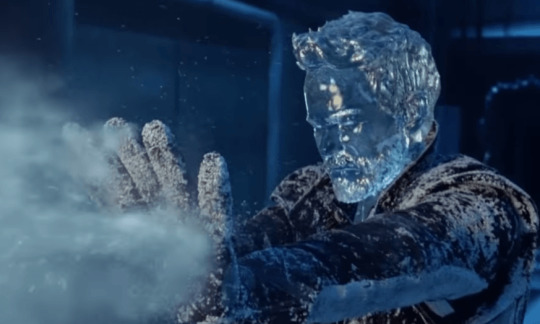
Portrayed by Shawn Ashmore
Bobby Drake had a simple life on Long Island. His father could be overbearing, sure, but it wasn’t a bad life. While he was out on a date, like all boys his age were doing, Bobby was interrupted by the town bully and decided to reveal his secret. He shot a blast of ice out of his hand, freezing the ruffian in his tracks. The news about the Drake boy spread fast and a mob assembled to attack the young mutant. He was rescued by Professor Xavier and his recruit Cyclops. The Professor offered Bobby a spot at his school for gifted youngsters and erased the memory of Bobby’s powers from everyone in the town.
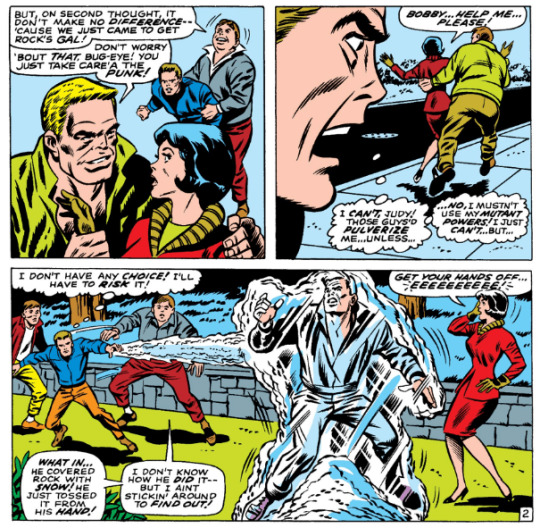
Art by George Tuska and John Verpoorten
Bobby took the name Iceman and trained in the use of his mutant powers. He discovered he could cover his body in snow, creates slides of ice, and freeze his enemies in their tracks. He formed a close bond with his teammate Beast and the two often went on double dates with some hip chicks from Café A-Go-Go. He had fun with the X-Men, they became like family, but soon new members appeared and Bobby realized it was time to move on.

Art by Jack Kirby and Paul Reinman
His father always wanted him to have a respectable job so Iceman enrolled in the accounting program at UCLA. He and his roommate Angel got embroiled in a plot by the god of the underworld to defeat Hercules and had to team up with Ghost Rider and Black Widow to form The League of Leftover Heroes The Champions of Los Angeles. They quickly folded, realizing they had literally no reason to be a team and Bobby decided to head back east to finish school. His good buddy Beast enlisted him to join the New Defenders with Angel while trying to finish his accounting degree. He began a relationship with his gender fluid teammate Cloud but struggled to accept them for who they were. He felt a sense of emptiness when they left the group and the Defenders soon disbanded and Bobby finally got his CPA.

Art by Don Perlin
Bobby got a job at an accounting firm and quickly realized that he didn’t want to spend his days hunting for deductions. When he found out that the original X-Men were reuniting as X-Factor it took literally zero effort to convince him to be a superhero again. Iceman started mentoring their young wards, even if kids like Boom Boom pushed his patience to its’ limits. He was captured by Loki, who unlocked the potential in his powers, but Bobby didn’t want to put the effort into testing them further. He began dating record store employee, Opal Tanaka and was entangled in a power struggle involving her family’s branch of the Yakuza and Cyburai (who, yes, are cybernetic Samurai). X-Factor rejoined the X-Men and for the first time since the silver age, Bobby Drake was home.

Art by Whilce Portacio and Art Thibert
Speaking of home, Bobby decided to take Opal to meet his parents. His racist father didn’t approve of his son dating outside his race and refused to accept the relationship. Between Mr. Drake’s attitude and Opal’s Cyburai based issues, the two decided to split. Without a relationship to define him, Bobby felt aimless. This only got worse when a comatose Emma Frost took over his body and used his powers in ways he never dreamed of. Iceman was dejected that Emma was so much better with his powers and left the team to go on a soul-searching road trip with Rogue.

Art by Steve Epting, Dan Green, and Steve Buccellato
Iceman volunteered to by the X-Men’s spy in Graydon Creed’s presidential campaign and saw a different side to his family. His father attended a debate of Creed’s but surprisingly spoke out against the anti-mutant bigotry the candidate spewed. Bobby was touched by his father’s words and moved to action when Creed had him attacked for speaking out. Soon, Bastion’s Operation: Zero Tolerance was underway and Iceman was forced to recruit a team of ragtag mutants to combat it. He had grown as a leader and as an X-Man.

Art by Carlos Pacheco and Art Thibert
The X-Men grew again, enlisting Northstar into their ranks. The Canadian speedster made a pass at Iceman, assuming he was gay, and was strongly rebuffed (oh and Chuck Austen starts writing Bobby like a jerk here for absolutely no reason). In response, Iceman pursued a relationship with the X-Men nurse, Annie Ghazikhanian but also Polaris at the same time. It sure felt like he was overcompensating for something. Soon after, M-Day hit and it appeared that Iceman was among the mutants to lose their abilities. It turned out that his issues were psychosomatic and Bobby only thought he has lost his powers rendering the whole thing pointless. Boy was this a bad time to be reading X-Men.
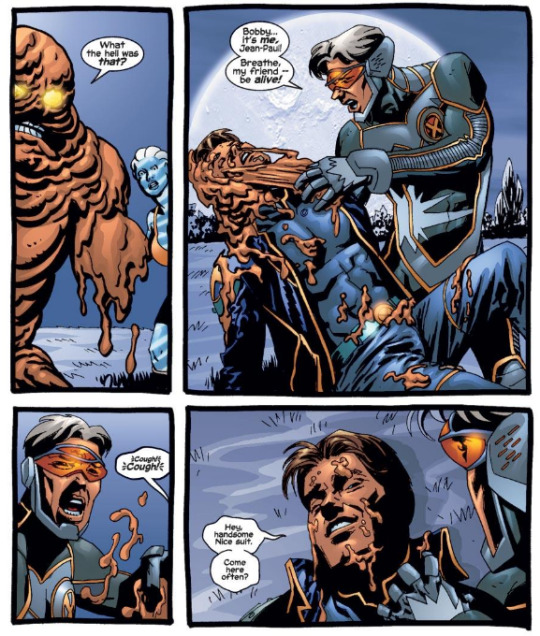
Art by Sean Philips
He was recruited by Rogue to join her X-Men strike force. He fell for fellow teammate Mystique and was shocked by her sudden but inevitable betrayal. Iceman and Cannonball were the last men standing after her attack and led the counter-attack. He followed the X-Men to San Francisco and was a solid contributor to the team, with the most notable thing being the time he had his body blessed with holy water so he could fight a vampire army. He wasn’t being well utilized on the island and jumped at the opportunity to follow Wolverine back to Westchester to start the Jean Grey School.

Art by Billy Tan and Andres Mossa
Iceman finally put his degree to use as the school’s chief financial officer. He taught classes, had a fling with Kitty Pryde, and joined one of the field teams. He also gained better control over his powers, mastering the ability to create an army of ice men. On a mission battling Celestials, Iceman was infected with the Celestial Death Seed, and his inhibitions slowly slipped away. He gathered all his ex’s and kidnapped them, he needed them to see he was worth their love. He confronted his father, nearly killing him as he asked why he could never accept his son. But above all else, he called on all his powers to cast the world into Fimbulvetr, the Norse great winter. The X-Men stopped their ally, but something was different in Bobby. Knowing the anger inside him and the insecurity he had repressed, left a mark on Iceman. He knew he would have to confront this sooner rather than later.
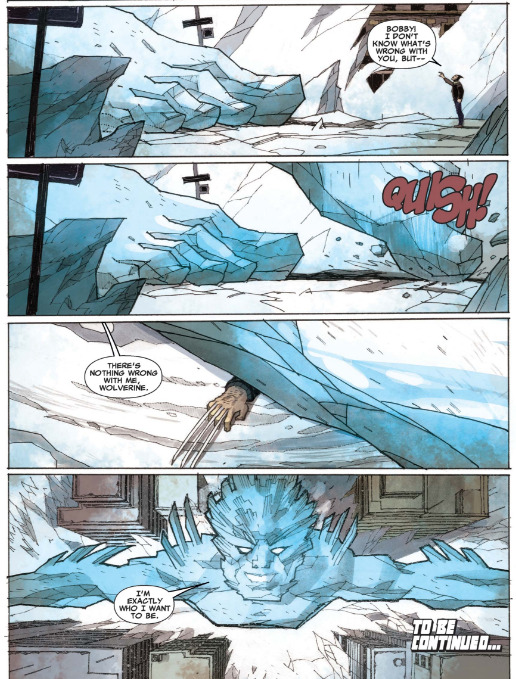
Art by Gabriel Hernández Walta and Cris Peter
Beast decided the best way to teach Cyclops a lesson would be to totally mess up the space-time continuum and bring the original five X-Men forward from the past. Iceman got along pretty well with his younger self, maybe he hadn’t matured much past the class clown he was a 15. The young Iceman confronted his older self with the revelation he had come to. Iceman was gay. For years he put his energy into being a superhero, doing what his dad wanted, trying everything he could to avoid coming to terms with the truth, but he couldn’t hide any longer. Bobby decided to come out of the closet, but the M-Pox crisis put personal relationships on pause. Now that it is resolved, Iceman has an upcoming solo title that promises to explore what this new normal means for Bobby.
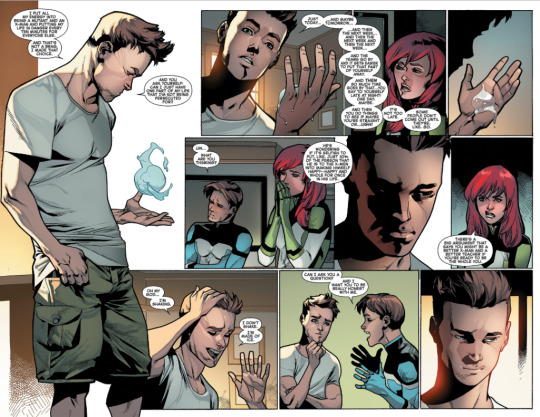
Art by Mahmud Asrar and Jason Keith
So before we get to the end lets talk about this retcon, because I know that’s all the comments are going to be about. There has been rumor and speculation that Iceman was gay since at least the 90’s (since that’s as far back as Dr. Internet can find but I won’t be shocked if it was before then). That doesn’t mean the subtext is textual, gay subtext is there for just about every member of the X-Men, but fans seemed to latch onto it with Iceman. There was even a gag on Family Guy about him being gay. I say all that just to point out that it wasn’t out of the blue. Now, it is obvious that Stan Lee and Jack Kirby didn’t create him as a gay character in 1963 and most writers wrote him straight as a default (Majorie Liu being a notable exception). Characters change and I believe having his sexuality be part of Bobby’s long history with repression is a valid interpretation of his history as a character. Plenty of gay men date women, get married, and have children before coming out of the closet later in life. Him dating women in the past doesn’t invalidate his sexuality. There are plenty of other arguments to get into about the specific mechanics of how he was outed, none of which I feel like starting a debate over, but Iceman being gay fits for me. X-Men fans should be excited that a marginalized group has such a high profile character as a member, not upset that it may not fit into every detail of continuity.
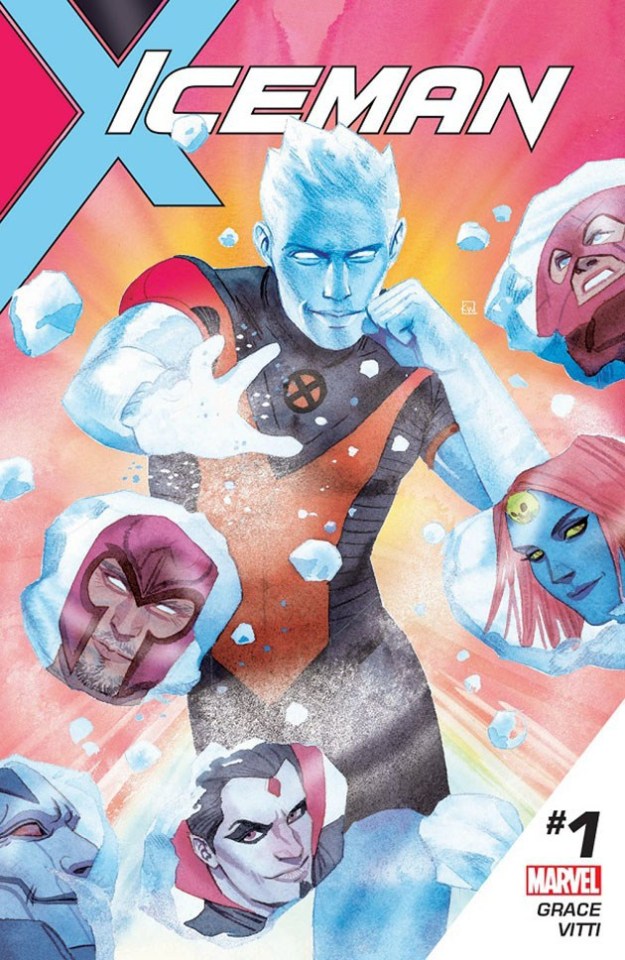
Art by Kevin Wada
Must Read
Iceman is an interesting character to recommend a book for. He often works as a secondary character in an ensemble and his solo titles have been universally bad. The moments where major stories turn the focus to him, like Operation: Zero Tolerance or Austen’s X-Men have happened to single dark times for the books. Probably the most interesting Iceman story comes from Majorie Liu’s run on Astonishing X-Men with Gabriel Hernández Walta. In this story Iceman is forced to confront all his repressed feelings about his father, his sexuality, and the potential of his powers. Bobby questions himself in a deeper, more personal way than he had before. Walta provides stunning, moody art that he would go on to perfect in books like Magneto and Vision. It’s a little uneven but it is well worth a read in trades or on Marvel Unlimited.
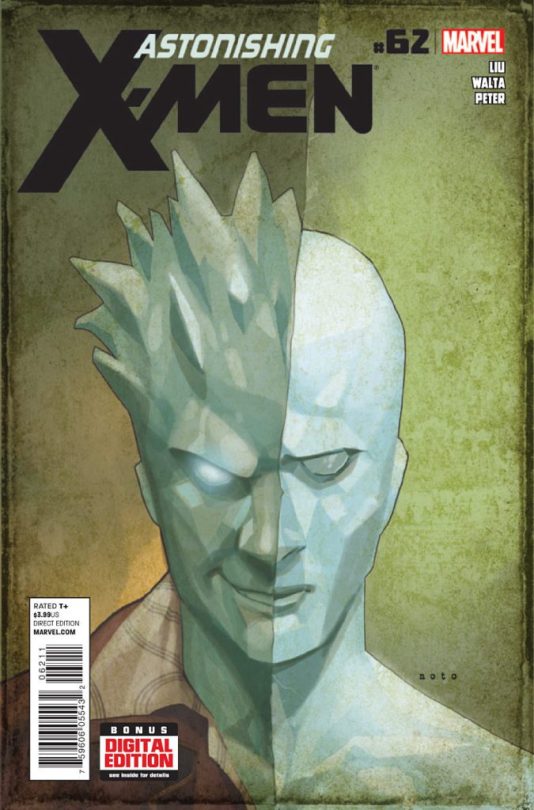
Art by Phil Noto
Ranking
When Stan Lee talks about the creation of Iceman he discusses wanting the Human Torch but with the opposite powers, and that is exactly what Iceman is. He is a knock-off version of the worst member of the Fantastic Four. He has often been a one-note joker where the best thing you could say about him is that he has the potential to be really powerful. Writers have struggled to find a good angle for the character and Bobby largely gets put into prominence because of his status as an original X-Man and his arresting visual design. I do not understand why anyone thinks he needs more of a costume than just his iced-up bod, but I digress. It isn’t that Iceman is a bad character, it’s just that I can think of plenty of X-Men I would rather see fill the same niche. The only other O5 character on the list is Cyclops and Iceman doesn’t rank anywhere near that high. In the same way I don’t see him anywhere close to his long time love interest Polaris near the bottom of the list. When I started this, I put Rachel Summers as a weird dividing line, but I like Iceman has had a lot more consistency than Rach. As I scan up the list my eyes stop at Kid Omega, him staring in Generation X has me more excited than the upcoming Iceman solo series so that has to be the ceiling. Right below him is Dazzler, and I’d rather read a comic with Iceman than with her. That slides Iceman in as the new number 25 in the Xavier Files.
Iceman was requested by Patreon supporter /u/bendisisgod among others. Thank you for the request. If you have a request for how about you send it below? If you want to cut to the front of the two-year long line, we have a Patreon you can support Xavier Files for just $1 to get a line cutting reward.
Click here if you want to see the full ranked list, with links to every entry in the Xavier Files so far.
If you liked what you read be sure to follow Xavier Files on twitter, Tumblr, Facebook!
Check out my new podcast Xavier Files Reviews were I talk about the X-Books of each week! Subscribe on Google Play | Stitcher | RSS | iTunes
Next week we talk about the most X-Treme character in X-Men history! See you then!
Character Request
Who do you want me to write about? *
Who are you/what name do you want me to thank you as for the request?
Entry Key
Entry 072 – Iceman was originally published on Xavier Files
3 notes
·
View notes
Note
Age old comic questions to ask: in the old debate regarding "which side of Superman is the real person whole other one is the fake identity", I consider Clark Kent the real person and Kal El/Superman his mask. What's your opinion?
In spite of being such a profoundly significant aspect of him - arguably THE significant aspect of him - I actually have two pretty irreconcilable answers to this one. In part it’s a matter of a multitude of fundamentally incompatible takes on him being presented over the years, and to narrow it down to a single vision in terms of legitimacy is impossible after 1940 or so. But if we’re being really honest, it also has to do with my mood at a given time, and my frustration with how he as a character is often treated.
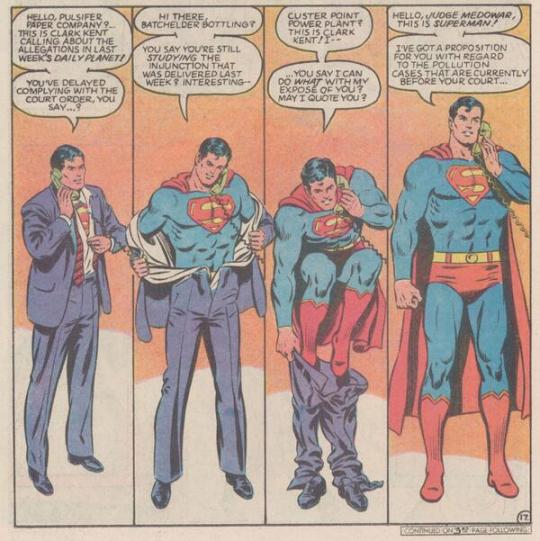
The first answer, what I’d call the proper answer for a modern mainline take on him, is both of them are real. Or, depending on your standards, neither of them. He doesn’t just turn off who he is, or spend half his life pretending. When he’s slouching in a bad suit and pretending to be near-sighted he can still count and mentally sort by size every dust mite in his field of vision in a picosecond, he’s still listening into police band frequencies, he’s still fighting for truth and justice. He’s still being Superman. And when he’s wearing a leotard and holding up collapsing bridges, he’s thinking about hitting deadline and feeling bad about bumping into that one guy from accounting and remembering how to make the recipe he tried on a recent time-travel trip that he’s sure Lois would like. He’s still being Clark. And at the same time he can’t be angry or bold as Clark, or scared or awkward as Superman, same as you might have Work You and With Your Friends You and With Your Family You, and they’re all real but not whole. The ‘truest’ guy such as he is would probably think of himself as Clark, but that’s the guy who knows how to drive a tractor and has been tinkering with a one-man Multiversal transportation unit in the Fortress and is wondering if he’ll ever write another novel, not exactly fitting with either of the above. And you could count on your fingers all the people in the universe who interact with that side of him on anything like a regular basis. Ultimately, they’re both meaningful and valid expressions of who he is, Clark the part of him that feels awkward and alien but determined to do the right thing in spite of the limits even he possesses, and Superman the very nice godling raised by the Kents to help people because he can.
…but there’s another answer too. If you’re enforcing a more rigidly-defined take on the identity binary, if you’re focusing on one side as being a ‘truer’ expression of himself even if neither encompass all of it, if you’re picking between the Silver Age Superman or the Byrne Superman as a more valid expression since they both decide on one, or if I’m just particularly frustrated with DC’s treatment of him on a given day and feel they need to flip the script - if one way or another, you’re being forced to pick one. In that case, my answer is definitely, unquestionably that he has to be Superman who sometimes pretends to be Clark Kent, not the other way around.
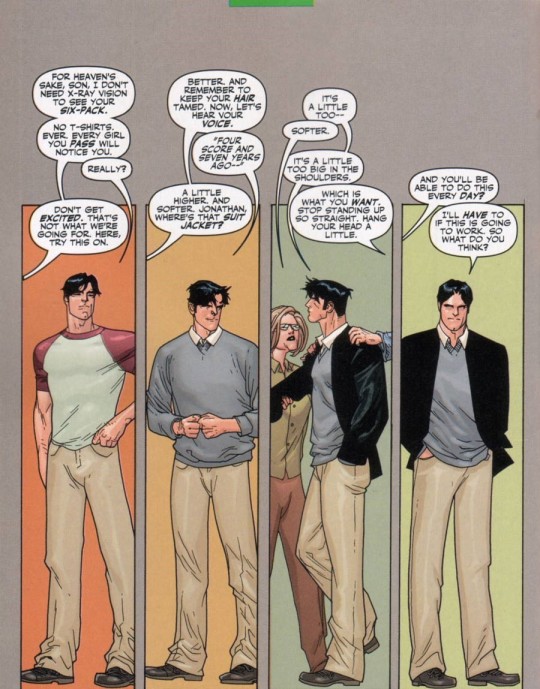
I know that goes against 30 years of conventional wisdom - especially since Kill Bill/Quentin Tarantino’s argument to that effect left a sour taste in a lot of mouths - but like the old narrator says, he’s SUPERMAN, DISGUISED AS MILD-MANNERED REPORTER CLARK KENT. That’s how Siegel and Shuster made him, that’s how the majority of his most critically-acclaimed stories portray him, that’s how he was for 48 years until John Byrne kinda-sorta-maybe broke everything forever, and of all the things he changed for the worse, Clark as the unambiguously true character of the two might have been the most destructive. ‘Power levels’ can be adjusted, he can start fighting bigger and stranger or smaller and more intimate threats, Krypton and the presence or lack thereof of Ma & Pa Kent in the present can be retconned, but that’s a fundamental change to the innermost core foundation of who he is, and while it arguably led to the more well-rounded “they’re both real” take down the line - though I’d argue it was headed that way anyway and Byrne actually significantly delayed it - at the time, it absolutely, catastrophically cut the character out at the knees. I would sincerely say that DC accepting it as the True Canon take on the character has been one of the biggest reasons he’s struggled to regain a foothold in the public imagination.
For one thing, if Clark’s the ‘real’ guy, he’s probably not going to be that different from Superman. He has to be brave and charismatic and unwilling to let injustices go unaddressed no matter the cost, because those are all clearly fundamental aspects of who he is, and Superman has to be capable of all those things too. The problem of course being that that makes him a Superman who isn’t doing cool Superman stuff, and unless you really zero in on the office drama or reporter intrigue as equally relevant and exciting parts of the story - which most don’t - that makes a Clark who’s real ironically a distraction from the real event of him being Superman, a set of interstitial scenes to break up the robot-punching. And it takes away the drama of him having a secret identity if they’re both the same: of course he spends half of his life as the guy he truly is when he’s not being a superhero, for the same reason Peter Parker doesn’t just take an Avengers paycheck and spend all his time as Spider-Man. Him willingly spending his time acting klutzy and insecure when he’s actually Superman is a fascinating insight into his character. If nothing else, it hits on the primal motherlode of relatability that is “to be normal and accepted he has to pretend to be someone he’s not”; there’s no overstating what a long way that goes in making a borderline god someone who you can sincerely empathize with, and everyone on Earth can do that with that experience. Handsome Hero Reporter Clark Kent fighting crime on the other hand is an obvious thing that character does if he has superpowers, and nothing more. It cuts him down from having an interesting motivation for each identity to one for both, and undoes a lot of potential complexity in the process.
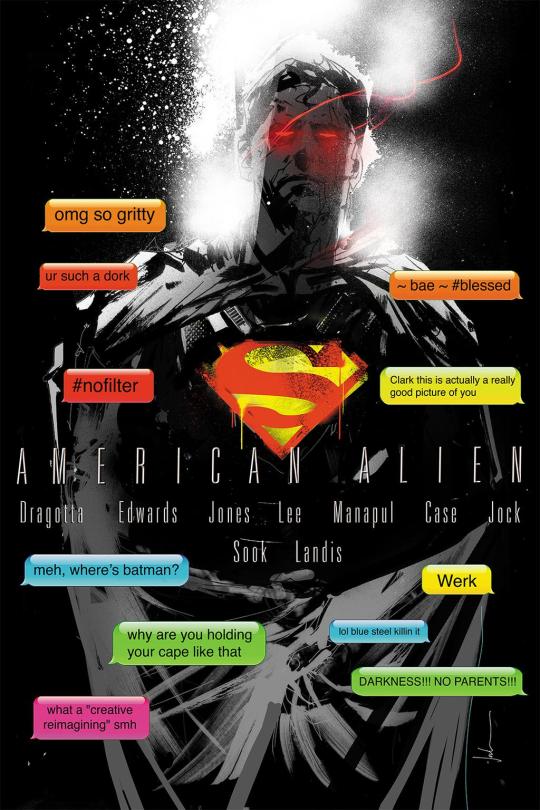
American Alien is the one story to come down entirely on the side of Clark Kent being the real one that I know of to really, powerfully work, and it rewrites a ton of how he functions to make that fit. In spite of some of what I said above still applying - the story is about how he becomes Clark Kent, superhero, his decision to put on the suit being an ancillary aspect of that, rather than him going down two parallel tracks that converge in interesting ways - it actually turns out well; it’s arguably the best Superman story since All-Star even if I’ve personally preferred a couple others, and in the isolated context of that story, it works incredibly well. As a Superman who’s meant above all else to address the specific themes and aspects of who he is that this story wants to go into, it goes perfectly: he’s a Clark who can still believably do Superman stuff, but because he’s really Clark that image ends up cracking, yet when the chips are down Clark is still tough enough in and of himself to get the job done. It’s absolutely a fair-game reimagining for the sake of what the creators are trying to do.
But just the same, while it fits for that one story and any possible sequels, I don’t think it fits with the broader portrayal of Superman as an icon, for a very important reason: one of the big things at the heart of his story is the idea that it’s our best selves that are our truest selves, at least in his eyes. Jor-El isn’t just the guy who failed to save Krypton, he’s the man who gave us Superman. Jimmy Olsen may be a dope who wanders into danger so often he needs a signal watch to summon the most powerful man on Earth to regularly save him, but he’s also a quick-witted crusading action reporter who’s decent enough that the best guy on Earth considers his best pal. Perry can be a dick boss, but he’s he’s a crusading journalist of integrity who wants to bring the best out of the people he works with, and because of that Clark looks up to him. Lex has done horrific damage, but Superman above all thinks of him in terms of the kernel of goodness inside him being squandered, and all the wonderful things he could do for the world. In Superman’s world it’s the best in us that’s the most essential part of who we are; he…screw it, Morrison put it better the way he always does:
“In the end, I saw Superman not as asuperhero or even a science fiction character, but as a story of Everyman.We’re all Superman in our own adventures. We have our own Fortresses ofSolitude we retreat to, with our own special collections of valued stuff, ourown super–pets, our own ‘Bottle Cities’ that we feel guilty for neglecting. Wehave our own peers and rivals and bizarre emotional or moral tangles to dealwith.
“I felt I’d really grasped theconcept when I saw him as Everyman, or rather as the dreamself of Everyman.That ‘S’ is the radiant emblem of divinity we reveal when we rip off our stuffyshirts, our social masks, our neuroses, our constructed selves, and become whowe truly are.”
The essential truth of his story is that inside every Clark Kent - the person our fears and vulnerabilities make all of us be, even him - when the time is right and you tear your shirt open there’s a Superman who will emerge as your highest, truest self to make things better. Not that behind every seemingly-magnificent Superman there’s the moments where he has to calm down and stop rocking the boat and go back to being scared, vulnerable, mild-mannered Clark Kent. You can rectify that by presenting Clark as a profoundly appealing figure in and of himself - Superman’s really just like you too! (though isn’t he just Spider-Man at that point?) - but like I said earlier, while Clark should be admirable, past a certain point that runs into some major problems of its own, and Lois is supposed to be the one to show how a normal person can be super anyway. Again, I think the best path forward is for both of them to be true. But if you’re making a decision, Clark may play his part…
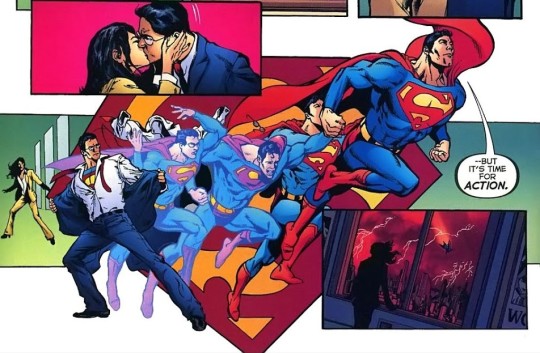
#Superman#Clark Kent#John Byrne#Grant Morrison#Superman: American Alien#Spider Man#Lois Lane#Opinion
245 notes
·
View notes
Text
Natural Woman: A Tribute to Aretha Franklin
The world lost actual royalty on Thursday, August 16th, 2018, when the Queen of Soul, Aretha Franklin, passed away at age 76. Our own Odie Henderson already paid tribute to her in his eloquent obituary, but we wanted to open the floor to a few more thoughts from our team, including Chaz Ebert, Nell Minow, Brian Tallerico, Omer Mozzafar, B. J. Bethel, Steve Erickson, Peter Sobczynski and Matt Fagerholm. Words can’t really do her justice, but we will try.
CHAZ EBERT
ARETHA FRANKLIN: NATURAL WOMAN
Ms Aretha Franklin, the undisputed Queen of Soul, was the singular musical influence in my life. Not the single, as in only, but the most important. I have great admiration for many singers such as Sara Vaughan, Ella Fitzgerald, Esther Phillips, Lena Horne, Whitney Houston, June Anderson, Dianna Ross, Adele, Dionne Warwick, and Barbara Streisand but Aretha’s singing helped me to discover the music of the heartstrings. Whether she was crooning "Natural Woman," "Dr Feelgood," "Giving Him Something He Can Feel," "I Say a Little Prayer," "Brand New Me," "This Girl's In Love With You," "Chain of Fools," “Nessun Dorma” or “R-E-S-P-E-C-T” her brand of soul seeped deep into my psyche, taking me through various experiences of love, as she was never timid about letting you know whether she was deliriously in love or woefully in pain, or on some platform in between the two.
There is a certain kind of down-home blues called “gut bucket” blues, not only because you feel it in your gut with each strum of the guitar but because it sounds like it is wrenched from the guts of the singer, from his or her firsthand experience with no money for rent and the baby needs shoes, and your love done got up and gone. Aretha’s songs came from her gut. There was no artifice. Her soulful moans were a direct translation whether you were wondering about love, falling in love, discovering sex, nursing a broken heart or telling a man to give you some Respect. She was that natural woman, who struggled with her weight, and her clothes but never with her affection for family and friends. When she performed professionally she sometimes demanded to be paid in cash and was known for carrying it around in her purse within her eyesight on stage. But that was her way of being assertive, for standing her ground and making sure she didn’t end up penniless like a lot of the entertainers who were taken advantage of. Whether in love or in life, her songs came from deep emotions and a myriad of deep experiences.
But she was also a multi-talented original, so her songs also came from her heart and soul, beginning with the gospel songs she sang in her father Reverend C. L. Franklin’s church in Detroit. Her rendition of “Amazing Grace,” brings me to tears each time. And the miracle is how well she seamlessly blended the gospel and the secular, finding the divinity in each. She took this blend of gospel and secular on the road with Dr Martin Luther King, Jr. to help with the struggle for civil rights. She didn’t back down from confrontation. “R-E-S-P-E-C-T” became a clarion call both for the civil rights movement and the women’s liberation movement.
I loved Aretha and what she stood for and the news of her death leaves me heartbroken. On the few occasions when Roger and I ran into her at events, I was surprised to find out that she could be shy. Or so she told me. Maybe that was part of her need for privacy; part of her Diva shield. She would get us alone and kick off her shoes, and she became playful and warm and funny. She could give as good as she got, and she loved teasing and catching up on the latest goings-on. It is so hard to say goodbye to someone who feels like they have been a part of your life for so long, even if you know them mainly through their music. I am just “saying a little prayer for her” and thanking her for all of the deeply soulful heart connections she engendered. And I am sending out the most heartfelt condolences to her family. Heaven has a new Queen.
BRIAN TALLERICO
When I was a teenager in Bloomfield Hills, Michigan, a suburb of Detroit, I worked in a book store called Metro News Center (it was mostly magazines and newspapers, but also had a healthy supply of new books). I can still remember the first time Aretha Franklin walked through the front door. There was no mistaking who it was. She wasn’t the kind of face you didn’t place. It was as if actual royalty had entered the building. A hush fell over the whole store that felt almost supernatural, as if the world made way for her wherever she went. When I think of the very concept of a celebrity being “larger than life,” I think of that encounter—the Queen of Soul wandering the aisles in a book store and the world stopping to watch her do it. It was unforgettable—although I’d pay a lot of money to remember what books she bought.
The world didn’t just lose a generational musical talent, it lost that increasingly rare degree of celebrity and superstar that can truly justify the title Queen.
OMER MOZAFFAR
She was that older sister who knocked down walls with the sheer will of her personality and the power of her voice.
NELL MINOW
I won’t try to express the greatness of Aretha Franklin with superlatives. Even the most extravagant would not do her justice. I will just say that beyond that voice, her magnificent instrument, the match of any musical genre or mood, beyond the inerrant musicianship that could take a melody, twist it, stretch it, toss it to the moon and back again without losing a brilliantly shaped note, was her grace as a person and a performer. When she demanded respect, when she told you to think, when she sang, “Mary, Don’t You Weep,” when she stepped in at the last minute to substitute for the foremost tenor of the world, Luciano Pavarotti, to sing his signature aria, Nessun Dorma, everyone who was lucky enough to hear her understood that her real greatness came from the honesty of a true natural woman.
B.J. BETHEL
Aretha Franklin's title of "Queen of Soul" was more than befitting the greatest singer America ever produced. She defended her reign in numerous feuds with other singers and celebrities. But one wonders if she took the title so personal because she was a Queen without a King.
Sam Cooke was more than inspiration for Franklin. The two met when she was 12 and he was in his early 20s.
Cooke died in 1964 after being shot by the manager of a hotel, an incident that still hasn't been wholly investigated and one he family - 50 years later - still wants re-opened.
Cooke was 33 years old when he died but was already dubbed the "King of Soul" for a string of songs and hits that may never be repeated, and a voice that expressed a joy and inspiration that was quite opposite of the hard life he lived.
"A Wonderful World," "Saturday Night," "Twistin' the Night Away," "Chain Gang." were a few of his hits, songs that were all staples of pop and soul music. His talent was equaled only by Franklin.
On Franklin's hit album "I Never Loved a Man the Way I Love You," she covered two of Cooke's songs. "Good Times," and his hit "A Change Is Gonna Come" as the final track on a record that began with "Respect." Pitchfork named the record one of the 10 best of the ‘60s, Rolling Stone had it in a list of top 100 records of all time. Cooke's inspiration was all over it.
What the two could have done if they had both been blowing up the charts at the same time has always been a question hanging in my imagination.
STEVE ERICKSON
When I went out for breakfast this morning at a Manhattan cafe, the radio was tuned to a station playing '80s and '90s R&B and hip-hop. The DJ spoke in between songs about Aretha Franklin's death today and her immense importance in American culture, but at least while I was there the station couldn't be bothered to play any of her actual music. But the artists they did play - Mary J. Blige (one of her most obvious descendants), Anita Baker, even a male singer like Prince - would have sounded much different without the bravery and swagger of her late '60s and early '70s music. "Respect" is just the beginning. Albums like SOUL '69, SPIRIT IN THE DARK and YOUNG, GIFTED & BLACK offer plenty of deep cuts, and a stylistic range that includes rock, jazz, blues and gospel, although she usually just gets summed up as a soul singer. The kind of female African-American rebellion summed up by "Respect" isn't exactly absent from our culture, but it says something about our times that the attitude and struggle represented by her best music and public persona still seem very contemporary.
PETER SOBCZYNSKI
As was probably the case for a lot of people who share my age and general background, my first real exposure to the majesty of Aretha Franklin came from the silver screen. For my ninth birthday, my family went to go see “The Blues Brothers,” a film that I had been champing at the bit after having seen its production virtually take over the Chicago area the previous summer. During the first section, our heroes are jumping bridges, getting blown up, driving through shopping malls, getting smacked by nuns and getting redeemed by the power of James Brown and for a movie-mad kid like me, every frame of it was a delight. Then Jake and Elwood decide to step into a restaurant on the famed Maxwell Street to grab some lunch and, hopefully, their old guitar player and saxophonist. What they run into is a force of nature that not even the combined efforts of all the top visual effects artists in Hollywood could ever hope to equal—a pissed-off Aretha Franklin laying down the law to her husband, the guitarist, via a rendition of “Think,” the 1968 song that she co-wrote with her real life then-husband Ted White. Her performance was volcanic—a show-stopper in the best possible sense—and for the three minutes and change that she is singing, the film essentially shifts in tone from goofy musical comedy to grand opera. Even people who didn’t like the film as a whole—and such miserable creatures do exist—were blown away by that scene and many critics pointed out that one flaw in the film is that when Jake and Elwood leave with their former bandmates, they inexplicably neglected to bring her along as well.
As a result of that movie, I began looking into the R&B/soul legends who populated the soundtrack and whose careers were given a welcome boost as a result of their association with the film, Franklin chief among them. I will admit that there are other people who could better articulate the power of her voice and how it not only revolutionized the music world but proved to be a force of strength in the battles for civil rights and women’s rights. I am not even going to attempt to do that for fear of inadvertently sounding like a character out of a lesser Nick Hornby novel. I will, say, however, that she was an artist who well and truly gave her all with every performance. She could take a dumb song (I’m looking at you, “Freeway of Love”) and usually invest it with far more passion and energy than it deserved so that even the throwaway filler tracks had more life to them than the best efforts of most of her contemporaries. When she had the chance to work on better material—(“You Make Me Feel Like) A Natural Woman” to “Think” (which she would eventually perform in “what would be one of the few highlights in the otherwise dire “Blues Brothers 2000”) to “Nessun Dorma,” the aria from Puccini’s “Turandot” that she famously performed during the 1998 Grammy Awards for millions of viewers, literally at the last minute, after original performer Placido Domingo fell ill—the results were simply exhilarating. She may be gone now in the literal sense but thanks to her musical legacy, the power and presence that she demonstrated every time she stepped up to a microphone will never be diminished.
MATT FAGERHOLM
Some people have you at "hello." Aretha Franklin had me at "Think." Her performance of that iconic tune in "The Blues Brothers" was such an electrifying and hilarious showstopper that it made me a lifelong fan. I received a six-CD boxed set of her greatest hits for Christmas that I listened to throughout my childhood, amazed by the versatility of her genius. Three years ago, she made a surprise appearance at the Kennedy Center Honors, where she paid tribute to Carole King by bringing down the house with "(You Make Me Feel Like) A Natural Woman." President Obama wept, and I did too. Thank you, Aretha, for your limitless inspiration.
youtube
youtube
youtube
youtube
youtube
youtube
from All Content https://ift.tt/2OJBDVc
0 notes
Text
Footrot Flats: Murray Ball's Enduring Reward To New Zealand
Top rated ten Times In Football Historical past
Also in Tier 2 we have the two most highly effective four-star heroes, Abel and Cordelia. Abel can stop wind-kind double-attacks and has a double-attack of his own at the price of pace. Cordelia has the similar double-attack weapon talent at the price tag of speed, but also has the skill to go yet again right after battling. In this list we have obtained Caeda, Lyn, Roy, Marth, and Tharja. Of these, Marth is our favored. Marth is in a position to recover 10hp every single 3 turns and he’s equipped to shift about the enemy. Marth is not an effortless character to defeat. Chrom is one more a person of the most effective in this tier. Chrome receives this substantial on the want-checklist for his capacity to sap strength from his opponents equal to half of the problems he’s dealt. Chrome is also able to mend 10hp each and every 3 turns. Tharja is ready to transfer brief and has a talent that is dependent on other heroes to get it started off. When an ally’s buff skill boosts Tharja, she gains the skill to offer more problems.
Employing this hacking software is wholly risk-free and undetectable and 100% risk-free, enable you to play the recreation for as lengthy time as you want. For us our largest payment is your Pleasure and we will do all the things to make smile on your encounter! You can be guaranteed that Clash of Lords Android/iOS Hack made by MasterHacks will do the job for you and we can assurance that! Putting up HACKS IS Very first Appear Very first Provide, DO NOT Move YOUR HACK TO THE Prime. YOU WILL BE BANNED & YOUR HACK Removed. Additional Gold, Jewels, Potions & Dragon Troops Enjoy Your Way! Struggle Modes for non-cease action. Master the Lords League, Resource Raids, and Solo Campaigns to reign supreme! Clash of Lords 2 Hack v1. will allow for you to include additional gold, jewels, souls! Clash of Clans android of Lords 2 Hack v1. get the job done with Android and iOS machine. Trainer is quite very simple to use and you can very easily increase Gold, Jewels, Souls in your account with just a single clicks of cheats video game button. All variations will be designed to strengthen your long run activity.
I like Matisse, I necessarily mean I actually like his paintings, so do numerous people, but not several as like Picasso. In truth not around as quite a few like Matisse, a fraction probably, a slender slice of the art globe. Every person is aware Picasso, to quite a few he is the King of Artwork. But Matisse dwells in the shadows, lousy Matisse, if it usually means substantially, I for one particular prefer Matisse. Picasso grabs the headlines, his was a life of extremes in every thing, he dominated and most had been inhibited by him. He was the One particular, a maverick. Whereas Matisse was immersed in the new movements of artwork, encouraging and helping, a trainer and so in the strangest of methods component of the system. Picasso under no circumstances was element of the procedure, he was considerably greater than the technique. John Peter Russell launched Matisse to Impressionism when Henri visited him at his artist's colony in Brittany. Color turned a kaleidoscope, Matisse was on his way. As Samson battles the Hulk, Quartermain and his Shield device get up close with the gas ready. Unable to break off his fight with the Hulk for panic the brute could possibly escape, Samson orders them to fuel him as properly as the Hulk in order to capture them. Even though Quartermain has reservations, unsure how the gas may possibly have an impact on Samson, he orders his males to fireplace. The gasoline manages to knock out both Samson and the Hulk, and they are gathered up and taken to a transport to be taken back to Gamma Base. With the Hulk now captured, and many thanks to an encephalo-helmet designed by Doc Samson, Bruce Banner's thoughts now operates in the Hulk's entire body. Almost straight away from his arrival, Banner is assaulted by the electrical fields of Glenn's brain, and attempts to change his helmet to deal with them. He is then attacked by manifestations of his aged foes the Missing Url, Juggernaut and Abomination.
Welcome to the fantasy environment of Korelis & the deepest puzzle journey RPG: Legendary: Video game of Heroes! This activity merges puzzle gameplay with RPG features and depth to create a enjoyable & multi-layered encounter on Android and iOS devices. You accumulate Heroes represented by playing cards to fight versus males, beasts, and Gods alike. You battle by matching orbs & earning use of specific fight moves one of a kind to each individual hero. You electricity up heroes & evolve them with elements and essence to turn out to be famous 6-star playing cards. Discover about sophisticated methods and fight facts on the Struggle Fundamentals page. You can also pay a visit to the Professional Tips page for fantastic general assistance on the activity. There are a number of diverse match modes readily available to play. Campaign • 330 phases to adventure via! Every day Dungeons • A new dungeon is open up each working day of the week. Functions • Take part in weekly events to earn new heroes, products and Time rewards. This engine is capable of offering a electricity of seventeen bhp 7000 rpm with peak torque of 18.35 Nm at 6000 rpm. The size of the bicycle is also very good. The chassis that is seen listed here is a tubular solitary cradle diamond sort. The bicycle can go up to a pace of 125 km for every hour. It has the ability to get to the array from to sixty km for each hour in just considerably less than four seconds. There is a 5 speed equipment box that it has. It has the ability to go up to 35 km per liter in the city streets, and can go up to 45 km for each liter in situation of the highways. The Hero Honda bicycle gives you a very easy ride. There are only nice ordeals driving it. It is very well suited both of those for the city roads internally and also the highways. Nevertheless the bike is a little shaky at occasions, it is really steady in most situations. The wheel base is pretty safe and sound. Even if you halt abruptly you can do so without the need of skidding. The shades that it is offered in are Sport Red, moon yellow, vibrant blue, black and drive silver. There are no variants that it arrives in. In situation you are wanting forward to buy this bicycle, you can glimpse for the Hero Honda Karizma rate from a variety of web-sites on the net. You can also pay a visit to the formal site to get the Hero Honda bikes cost. You can see that the price of this bicycle is about INR 81000. This is an amazing bicycle to individual at this fee. That would be the assertion by anyone who ahs made use of it. Hero Honda Karizma's higher value and dimension is not just for the looks and electric power. Together with it you also get a thing priceless the Self Confidence and the King of the Highway experience.
0 notes